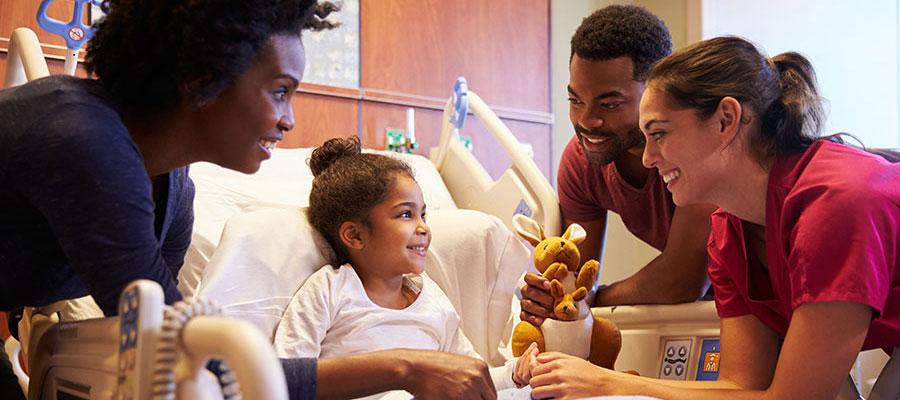Breaking Down Barriers to Greater Health Equity

By Elisa Arespacochaga and Derek Robinson, M.D.
Health equity is about creating a system where all individuals have equitable access to quality health outcomes. While health care is important, health equity reaches beyond the proximity to care facilities or one’s access to adequate coverage. For many communities, structural barriers to health equity are realized in limited access to nutritious food, safe and convenient transportation, environmental quality and basic housing. Compounding these disparities are inequities in employment, educational funding, health care workforce diversity, and understandable mistrust of the health care system by diverse communities, with each factor woven into the complex fabric of poor health disproportionately experienced along racial and ethnic lines. COVID-19 has illuminated the health outcomes of our pre-pandemic state, where cradle to grave disparities have persisted as accepted health outcomes, evidenced by disparities in infant mortality and life expectancy.
Identifying the barriers that may be disrupting high-quality health care in our communities is one key to improving lives and strengthening community bonds. For health care organizations, this journey begins internally with processes that ensure disparities in health care are identified and eliminated. This road extends to partnerships with external organizations with complementary roles in improving the health of communities in need. During this unprecedented time, AHA’s Institute for Diversity and Health Equity (IFDHE) and Blue Cross and Blue Shield of Illinois (BCBSIL) are joining forces to accelerate the efforts of 13 Illinois hospitals that are developing programs to help more people achieve their best possible health.
Through this new health equity grant program, participating hospitals and health care organizations across the state will receive awards ranging from $25,000 to $100,000; this money will be used to support innovative programs targeting health care disparities within their organizations and communities. Some areas of focus include maternal and child health, pediatric asthma, adult diabetes, breast cancer and increasing rural communities’ access to health care.
More information is available in our press release.
Helping hospitals advance health care and improve diversity within their own organizations has been a longstanding core mission of the AHA and IFDHE. Likewise, BCBSIL has a long history of supporting health care providers in delivering needed care while helping alleviate access barriers for members. From providing training resources in diversity management to forming strategic national partnerships that enable hospitals’ collaboration and strengthened community outreach, we are consistently working to tear down the barriers that inhibit inclusiveness. This partnership is one example, of how collaboration across the health care continuum can help advance community health for all stakeholders.
How are hospitals using these new grant awards to advance health and make a difference in their communities? A great example is happening in the heart of Chicago.
The University of Illinois Hospital’s Mile Square Health Center (MSHC), which serves neighborhoods in some of Chicago’s most economically-challenged areas, will use grant funds to launch a comprehensive Type 2 diabetes program for detection, education and prevention.
In 2019, MSHC provided care for more than 3,600 adults affected by Type 2 diabetes. Around 90% of those treated were identified as racial and ethnic minorities. Patient data revealed that food insecurity is a compounding problem that affects many residents in the communities that MSHC serves.
Through its AHA/BCBSIL grant, MSHC is launching several new initiatives, including a diabetes registry of all adult patients in its surrounding communities that are affected by Type 2 diabetes. MSHC is also implementing a new diabetes education program to address multiple determinants of health. Also, the new funding will help MSHC start a community pilot program that will provide fresh produce and cooking demonstrations to high-risk adult diabetic patients.
The overall goal of health equity doesn’t apply only to some communities. It pertains to all individuals who encounter barriers on their road to better health. Ideas are being turned into action and hospitals are setting examples for their peers about going beyond their walls to build community connections and promote greater health care innovations. By supporting each of our health equity grant recipients, the AHA, IFDHE and BCBSIL are investing in our hospitals and communities to promote greater health equity.
Elisa Arespacochaga is Vice President of the AHA Physician Alliance and interim executive lead of AHA’s Institute for Diversity and Health Equity.
Derek Robinson, M.D., is Vice President and Chief Medical Officer of Blue Cross and Blue Shield of Illinois.

